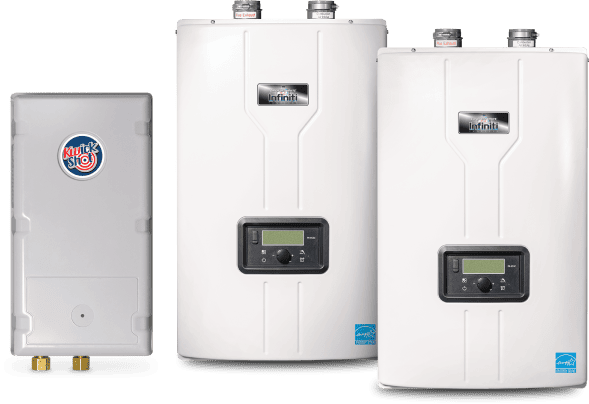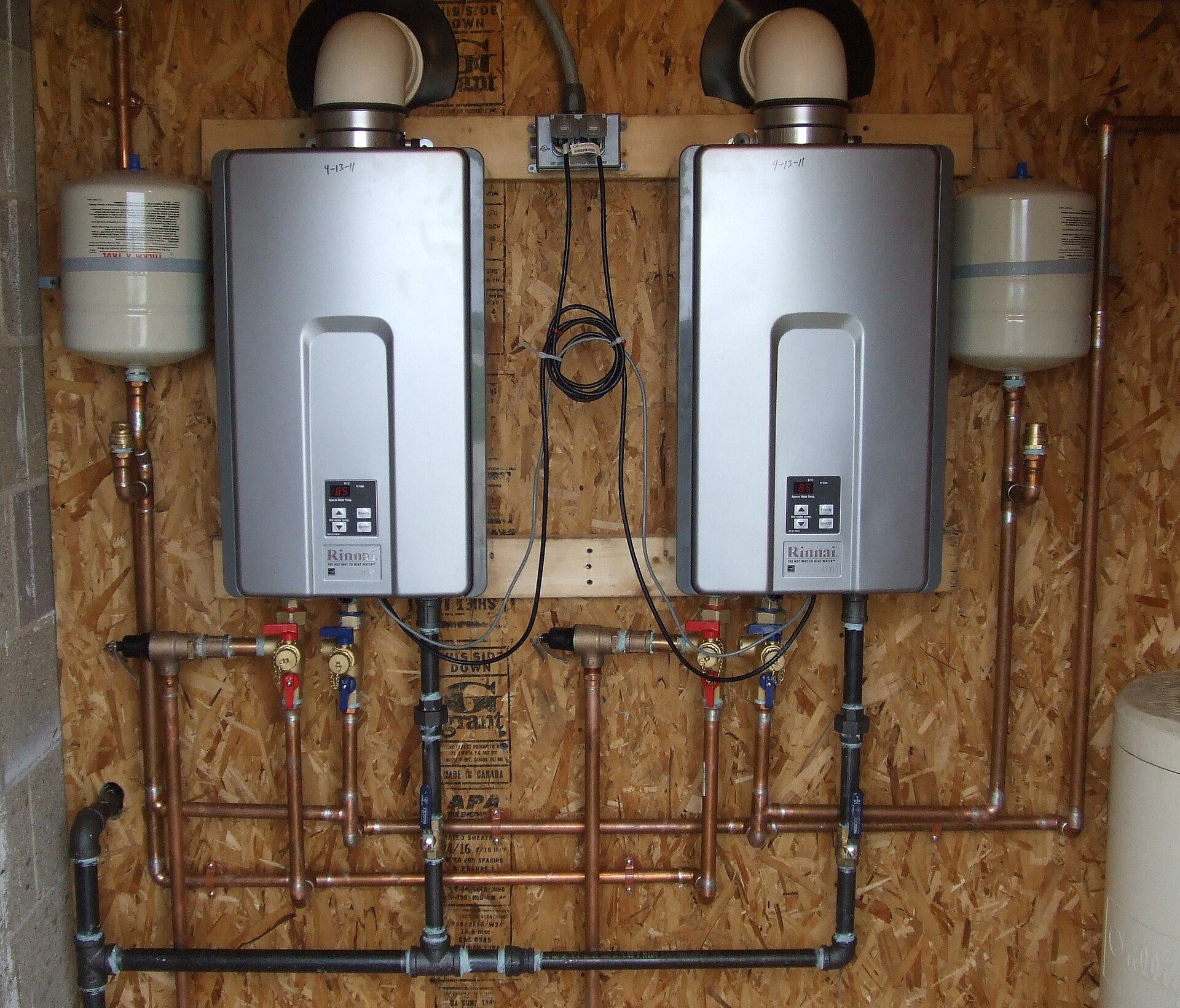Here down the page you might get more dependable points about Six Benefits of a Tankless Hot Water Heater.

In a globe where comfort and efficiency preponderate, it's no surprise that house owners are frequently in search of smarter means to handle their home's power usage and comfort. One advancement that has actually gradually gained popularity is the tankless hot water heater. Yet exactly what makes these systems attract attention from the traditional tank-based models a lot of us grew up with? Let's dive in and check out the benefits of tankless hot water heater, helping you determine if it's time to make the switch in your house.
Introduction
Image this: you step into the shower after a long day, anticipating a calming cascade of warm water, only to be greeted by icy droplets because the last person utilized everything up. Audio acquainted? Typical hot water heater keep a set amount of hot water, meaning you go to the mercy of that tank's supply. Tankless systems, on the other hand, warm water on demand. Say goodbye to running out mid-shower, no more fumbling with schedules simply to make sure hot water is offered.
Understanding Tankless Hot Water Heater
What Are Tankless Water Heaters?
Tankless hot water heater, in some cases referred to as on-demand or instant water heaters, supply hot water just as it's required. Instead of saving gallons of pre-heated water, these units kick into activity the minute you activate the tap. Water passes through a warmth exchanger, warming up in real-time, indicating you get an undisturbed flow of warm water without the need for a large storage tank sitting idly by.
Exactly how Do They Differ from Conventional Systems?
Traditional heating systems hold a storage tank of warm water, utilizing energy to maintain that container at a consistent temperature level. Tankless systems eliminate the standing supply, lowering thrown away energy and the cumbersome footprint of a big cyndrical tube. Essentially, you're updating from a "accumulation" way of thinking to a "made-to-order" method.
Typical Sorts Of Tankless Units
Tankless water heaters normally come in two ranges: gas and electric. Gas designs often tend to provide higher flow prices, ideal for larger families, while electric versions frequently serve smaller homes and are typically simpler to set up. Additionally, some systems are developed for point-of-use (offering one component) while others can manage the entire home's warm water needs.
Secret Advantages of Tankless Water Heaters
Power Effectiveness and Price Savings
No more warming a titan container's well worth of water and maintaining it toasty throughout the day. Tankless heaters reduce standby power losses, which can reduce utility bills. While the preliminary price could be greater, the long-lasting cost savings commonly justify the investment.
3. Space-Saving Design
If your home is short on storage space, eliminating the large tank frees up valuable room. Tankless units are portable and can frequently be placed on wall surfaces, hidden in edges, or set up in limited utility storage rooms without gobbling up the entire area.
4. Longer Life expectancy
A well-kept tankless water heater can outlast its tank-based cousin. Conventional storage tanks might last 10-15 years, while tankless versions can keep downing along for 20 years or more, making them a strong investment over time.
1. Limitless Warm Water Supply
Ever needed to schedule showers so every person gets their reasonable share of warm water? With tankless, that comes to be a thing of the past. As long as the heating system's flow capability isn't surpassed, you can take back-to-back showers without turning into a popsicle.
5. Improved Water Top Quality
Storing water in a storage tank can occasionally bring about sediment buildup or a somewhat "off" taste. With tankless systems, fresh water is heated up right away, reducing the possibilities of sediment build-up and possibly supplying cleaner-tasting water.
Factors to consider Prior To Changing
Though the benefits are engaging, it's important to take into consideration a couple of aspects prior to completely committing.
Assessing Your Home's Water Usage Patterns
If your house all at once uses several fixtures with high warm water need, ensure the unit's circulation rate meets your demands. Understanding your usage patterns aids you pick the appropriate size and type of tankless heating system.
Upkeep and Treatment Tips
Tankless systems are relatively reduced maintenance, but they aren't set-it-and-forget-it home appliances.
Regular Cleansing and Descaling
Difficult water minerals can develop in the warm exchanger, influencing performance. Routine descaling (usually recommended every year) maintains the device running at peak performance.
Annual Professional Assessments
A yearly checkup from a specialist ensures minor problems are caught early. They'll examine the system's performance, search for leaks, and assist preserve ideal efficiency.
Initial Financial Investment Prices
Tankless heating systems typically come with a greater ahead of time price. In between the device itself and possible installation alterations, the initial expense could provide you sticker label shock. But bear in mind to see it as a long-lasting financial investment.
Installation Needs
Depending upon your home's framework, you may require extra electrical capacity or gas line upgrades. Ensure you comprehend the installation needs and talk to a specialist to avoid surprises.
Making Sure Correct Ventilation
For gas designs, appropriate air flow is important to securely eliminate exhaust gases. Ensure venting systems are clean and properly set up to stop any kind of possible safety and security hazards.
Comparing Different Brands and Versions
Not all tankless hot water heater are created equal.
Investigating Reliable Manufacturers
Look for credible brands with a history of producing quality devices. A reputable manufacturer commonly gives much better consumer support and longer warranties.
Installation: DIY or Specialist?
While some property owners cherish tackling projects themselves, tankless installation might not be the very best time to break out the tool kit.
Benefits and drawbacks of DIY Installment
A DIY mount might save cash, but it includes risks. Wrong installation can cause inadequacy or security worries. If you come in handy and have experience, it could be viable-- yet wage care.
Checking Out Evaluations and Individual Comments
Individual reviews and feedback from next-door neighbors or friends that have actually gone tankless can use important insights. Sometimes, real-life experiences can be a lot more informing than advertising brochures.
When to Call a Professional Plumbing
For most, calling a pro guarantees everything's done appropriately. A professional plumbing recognizes regional codes, sizing requirements, and airing vent parameters, lowering the risk of incidents.
Making best use of Efficiency
You have actually invested in a tankless system-- currently optimize its performance.
Optimal Temperature Setups
The majority of people establish their devices in between 120-140 F. Readjusting the temperature level can boost convenience and financial savings. Experiment to discover a pleasant place that does not waste power.
Coupling With Low-Flow Fixtures
Intend to extend your system's abilities? Consider mounting low-flow showerheads and taps. They decrease water use, enabling your tankless system to provide a steady stream of warm water without straining.
Ecological Effect
Tankless water heaters align with greener living objectives.
Minimized Carbon Footprint
By utilizing much less energy and only home heating water as needed, tankless systems can decrease your home's carbon footprint, decreasing your ecological impact.
Preserving Natural Resources
Less power intake and less lost warm water translate into fewer natural deposits being used, an ecological win-win.
That Profits Most from Tankless Heating systems?
The charm of tankless heating units is that they can match a selection of households.
Large Families vs. Solitary Owners
Huge families may like the limitless hot water supply, while solitary owners value the power financial savings from not warming a whole storage tank for just one person's early morning shower.
House Owners with Restricted Space
If your home is short on square footage, shedding the bulky tank liberates area for other fundamentals-- or perhaps just more breathing space.
Eco-Conscious Customers
Going tankless aligns with environmentally friendly worths, ensuring you're not throwing away energy or sources.
Future Patterns in Tankless Hot Water Heater
The world of home devices is ever-evolving, and tankless water heaters are no exception.
Advancements in Innovation
R&D is constantly enhancing warmth exchangers, making units a lot more efficient and long lasting. Future versions might be also quieter, more compact, and much better suited for varying climates.
Smart Home Combination
Imagine adjusting your water heater's temperature through an app or receiving maintenance signals on your phone. As clever home tech breakthroughs, we'll see more connectivity and comfort.
Conclusion
Choosing a tankless water heater is more than just upgrading your home's hot water system; it's investing in long-lasting convenience, power efficiency, and a greener lifestyle. By considering your household's water usage, being mindful of setup demands, and devoting to normal maintenance, you can enjoy a constant stream of hot water without the luggage of a large container. As technology progresses, you can anticipate even smarter, much more effective tankless solutions that not only make your life less complicated yet also benefit the world.
Why You Should Consider a Tankless Water Heater for Your Home
Energy Efficiency and Cost Savings
Tankless water heaters, also known as on-demand water heaters, heat water only when needed. This means they don't waste energy keeping a tank of water hot constantly. This efficiency translates into substantial cost savings on your monthly energy bills.
Endless Hot Water Supply
One of the significant advantages of tankless water heaters is their ability to provide a continuous supply of hot water. Traditional tank water heaters have a limited capacity and can run out of hot water, especially during peak usage times. In contrast, tankless water heaters can provide an endless stream of hot water, making them ideal for larger families or homes with high water usage.
Space-Saving Design
Tankless water heaters are compact and take up significantly less space compared to traditional tank heaters. They can be installed on walls, under cabinets, or even outside, freeing up valuable space in your home. This makes tankless water heaters a great option for smaller homes or properties with limited space for a traditional water heater.
Longer Lifespan and Lower Maintenance
Tankless water heaters typically have a longer lifespan compared to traditional tank heaters. They can last up to 20 years or more with proper maintenance. Additionally, tankless systems are designed with replaceable parts, which can extend their lifespan further and reduce long-term maintenance costs.
Environmentally Friendly
Reducing energy consumption not only saves you money but also benefits the environment. Tankless water heaters contribute to a smaller carbon footprint by using less energy to heat water. Their energy efficiency and ability to minimize standby heat loss make them an eco-friendly choice for environmentally conscious homeowners.
Customized Temperature Control
Tankless water heaters offer precise temperature control, allowing you to set the desired temperature to meet your specific needs. This level of customization ensures you always have water at the perfect temperature for your comfort and usage requirements.
https://beantownservices.com/blog/consider-tankless-water-heater-for-your-home

As an enthusiastic reader about Unveiling the Hot Trend: The Benefits of Tankless Water, I assumed sharing that piece of content was essential. Are you aware of someone else who is fascinated with Pros and Cons of Tankless Water Heater? Do not hesitate to share it. Thanks a bunch for being here. Return soon.
Book An Appointment
Comments on “Learning About The Benefits Of Smart Water Heaters”